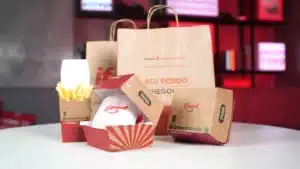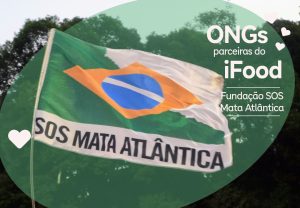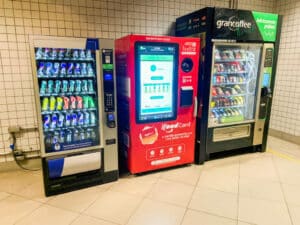In 2021, iFood outlined an important goal in the area of environment: reduce the amount of plastic used in delivery by 50%. And one of the fronts on which the company works to achieve this objective is in initiatives related to recycling.
iFood projects are based on three pillars:
- Raise awareness and engage society in recycling;
- Promote opportunities for the correct disposal of recyclables;
- Innovate circular economy solutions to recover waste from delivery.
And the actions coordinated by the company seek to tie together several ends so that the entire recycling journey comes to fruition.
“The environmental education of society, combined with the training and optimization of cooperatives, means that recycling is expanded”, says Camila Borges, senior sustainability analyst at iFood. “With this, we were able to promote the circularity of waste in the sector, generating socio-environmental impact in the places where we operate.”
Discover, below, some of the company's programs to promote recycling.
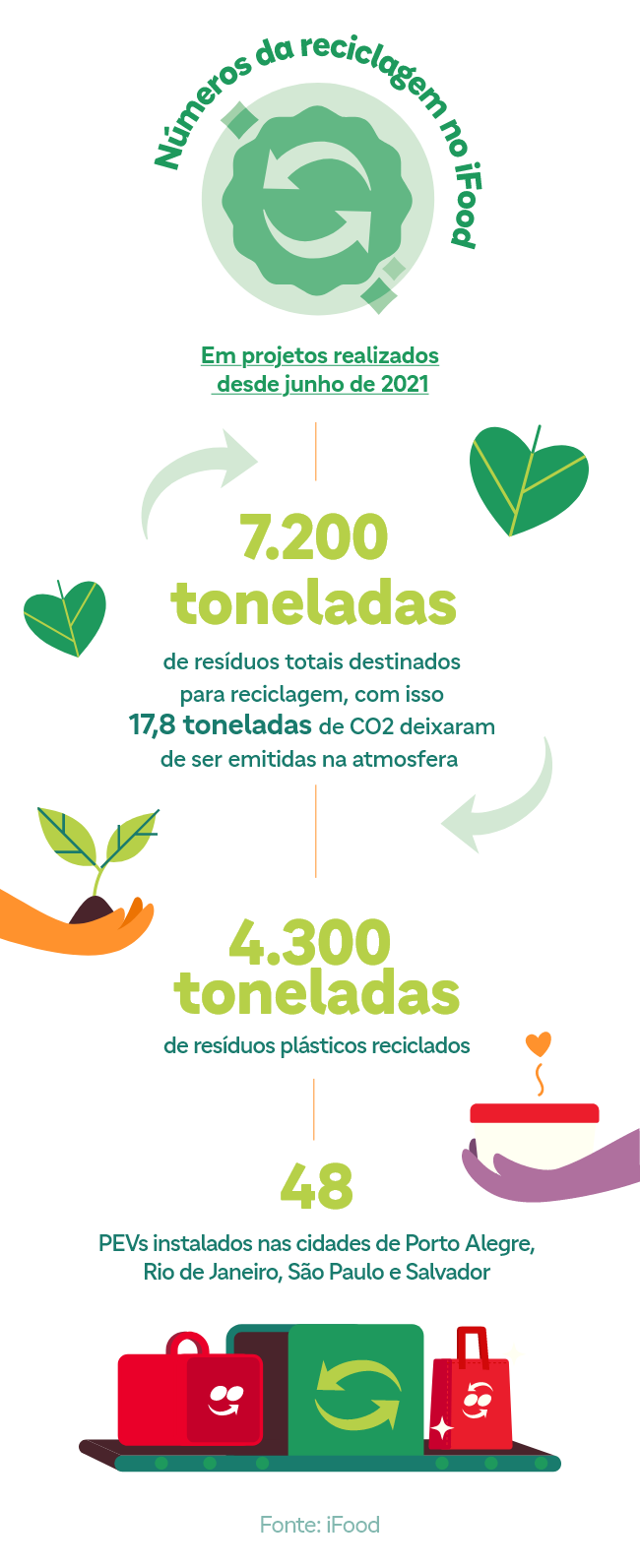
Follow iFood News on social media: Instagram It is Facebook.
Voluntary Delivery Points
iFood installed 48 PEVs Voluntary Delivery Points in four capitals to encourage people to recycle.
“In Ferraz de Vasconcelos, in São Paulo, we also adopted a format in which an electric tricycle, used by our partner Collecting, enters the narrow streets of communities to collect recyclable waste from homes”, says Camila.
iFood's action in this municipality in the metropolitan region of São Paulo also counts on the partnership of the NGO Generating Falcons.
Re-cycle Fortaleza
O Re-cycle appeared in 2022. It is a free recyclable collection platform run by the city of Fortaleza, sponsored by iFood and run by Startup Solos.
Currently, it promotes selective collect door to door in homes, bars and restaurants in six neighborhoods of the municipality, reaching the mark of 370 tons of recyclables collected by June 2023.
Collection is done by electric tricycles driven by collectors from associations selected to work on the project, empowering these professionals.
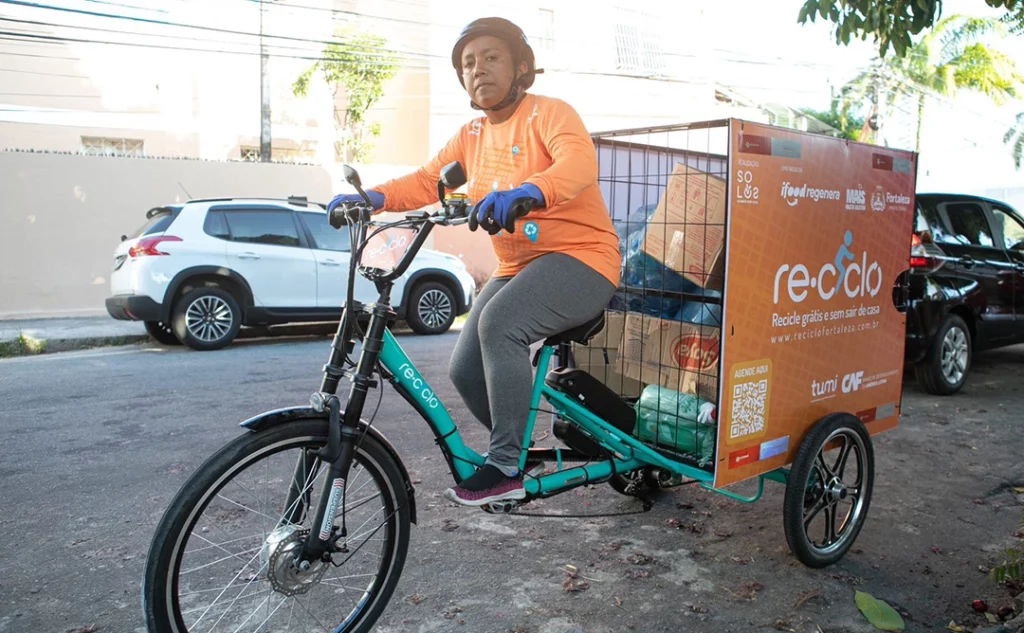
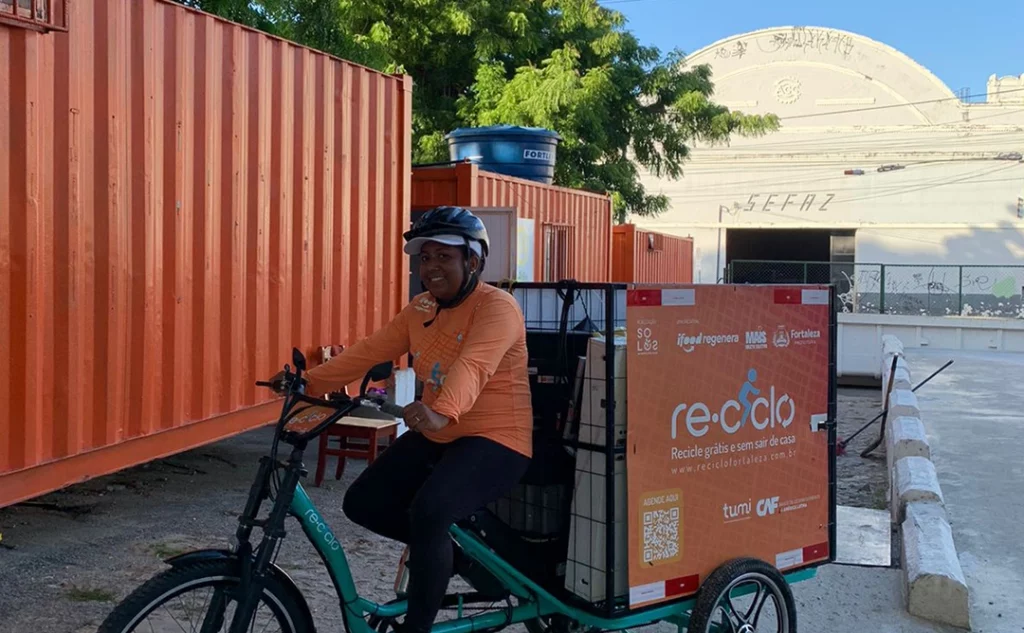
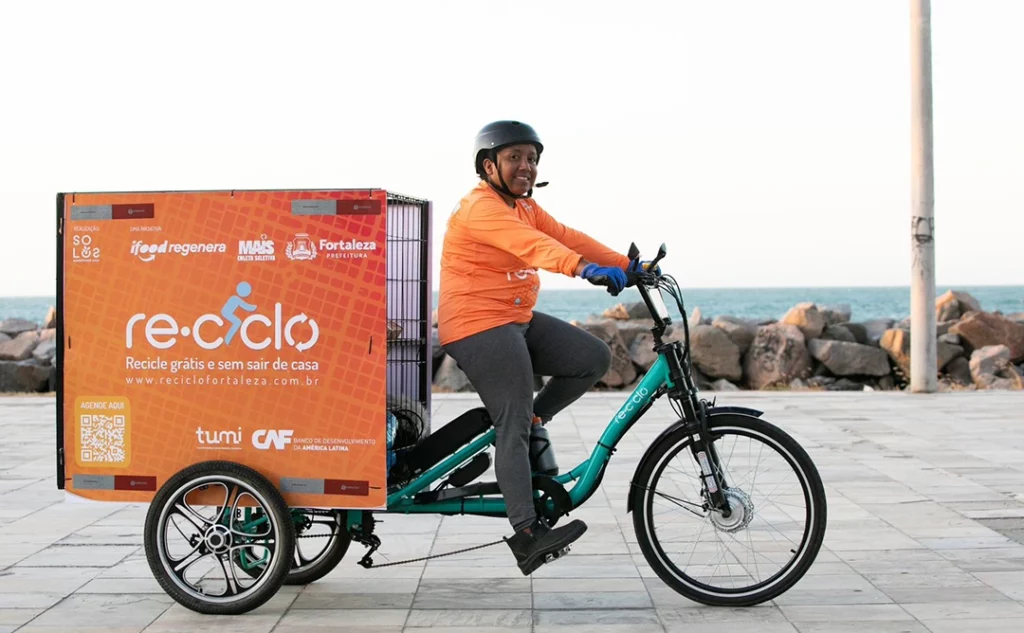
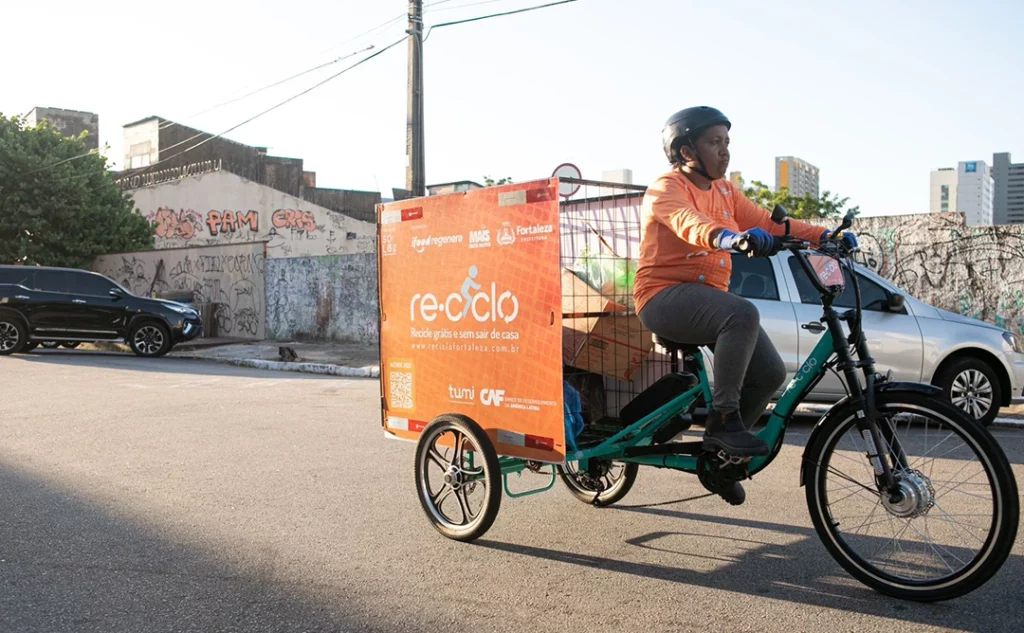
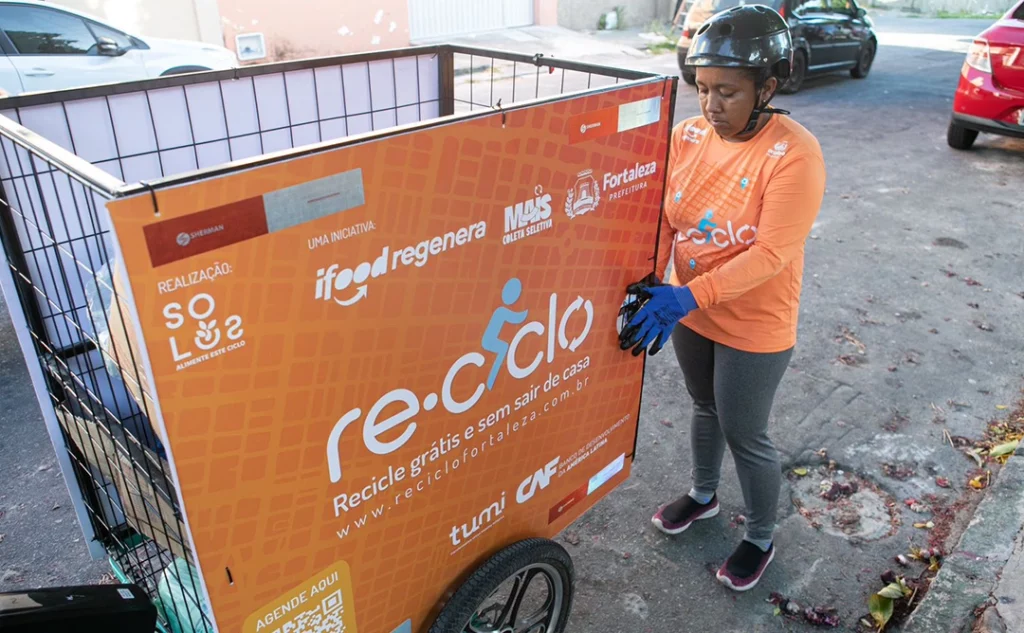
One of the program's beneficiaries is Raquel Nascimento, 35 years old. She says that she has been collecting for five years, but that, in the last eight months, her working conditions and earnings have improved a lot.
This happened thanks to the partnership that the association of which it is part, Moura Brasil, became part of the Re-ciclo project.
“Before, we would go out in groups by truck or cart to make 5 collections a week”, says Raquel. “Today, we are able to carry out 50 collections weekly, leaving on 5 electric tricycles.”
The work was all organized by routes, traveled regularly between 8am and 5pm, every day.
Thanks to the new routine, Raquel tripled her monthly income. “Before, I earned between R$ 250 and R$ 300 per month”, he calculates. “Now I get R$ 900.”
Additional income has not only a financial impact on your life, but also an affective and emotional one. After all, the increase in the budget allows her to provide “more comfort” for her two daughters, aged 6 and 12.
“I buy better things for them, like clothes and food items,” he says. “I was also able to pay for tutoring for their studies.”
Revert – recycling of Styrofoam®
Isopor® is a material derived from plastic and 100% is recyclable. But logistics and volume issues make recycling difficult.
iFood then launched, in November 2022, the Revert, a program to optimize logistics and the value of material sales.
The project is carried out in partnership with TrashIn, a waste management and reverse logistics company. And it involves the acceleration of cooperatives through the application of technology, enabling them to recycle Styrofoam®.
I've Been Bag
iFood's bags, thermal backpacks, do not go to waste when they lose their usable condition.
The project I've Been Bag, a reverse logistics action created in 2020, correctly disposes of the material that makes up the bags.
Part of it is sent to a textile industry cooperative that reuses it in new products. Another part goes to the cement industry, where it replaces petroleum coke, a fossil fuel used in the furnaces of companies in the sector.
The project is carried out in partnership with startup Brazilian GreenPlat, responsible for structuring collection logistics and environmentally correct disposal of backpacks, and with Shred, which transforms the bags in new products.
Já Fui Bag recovered, in 2020 and 2021 alone, 124 tons of thermal backpacks.
